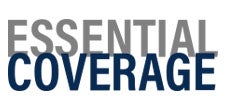

On November 6, voters across blue and red states showed their support for health care. Exit polling conducted by Public Policy Polling found that health care was top of mind for voters — 63% said health care was an important issue in the midterm elections. Voters in Idaho, Nebraska, and Utah passed ballot measures to expand Medicaid in their states, bringing the number of states that have adopted the Affordable Care Act’s (ACA) Medicaid expansion (PDF) to 36 (plus the District of Columbia, which is more populous than Vermont or Wyoming). “The overall message is that the electorate does not see this as a Democrat or GOP issue but as an issue of basic fairness, access to care, and [a] pocketbook issue,” Katherine Howitt, associate director of policy at the advocacy group Community Catalyst, told California Healthline.
An Urban Institute analysis estimates that 119,000 residents in Idaho, 86,000 in Nebraska, and 158,000 in Utah could gain coverage when the states implement Medicaid expansion. That’s approximately 363,000 more Americans who could benefit from better outcomes in many facets of life. Benjamin Sommers, MD, PhD, associate professor of health policy and economics at Harvard University, told Vox’s Sarah Kliff that Medicaid expansion “makes a major difference in patients’ ability to access health care, to pay their bills, and, in many studies, we see improved health outcomes too.” The positive impact that Medicaid expansion can have on family finances was explored in a 2017 article on The CHCF Blog.
The passage of these ballot measures in conservative states where elected officials have rejected the ACA bodes well for the remaining states that have not expanded Medicaid, even though Montana residents voted down a measure to continue funding for the state’s Medicaid expansion. Before the midterm elections, Jonathan Schleifer, executive director of advocacy group The Fairness Project, told The Hill, “If Medicaid expansion wins in these states, it can win anywhere.” And on the Center on Budget and Policy Priorities blog, senior policy analyst Jesse Cross-Call, MPA, highlights progress in Kansas and Wisconsin, where voters “elected governors who made their support for Medicaid expansion central to their campaigns.”
California Support for Health-Related Propositions
Meanwhile, in California — an early adopter of Medicaid expansion — voters decided numerous state ballot measures related to health policy.
Proposition 2, which authorizes the state to borrow money to fund supportive housing for people with mental illness, passed with 61% of the vote. The San Francisco Chronicle describes the measure as allowing “the state to divert $2 billion in existing county mental health funds to finance bonds for housing.”
Proposition 4, which allows the state to issue $1.5 billion in bonds for infrastructure improvements at children’s hospitals, also passed with 61% of the vote. Catherine Ho of the San Francisco Chronicle writes that eight private, nonprofit children’s hospitals across the state will receive 72% of the funds ($135 million each) because they serve more uninsured and children in low-income households. Five University of California hospitals will receive 18% of the funds ($54 million each), and the remaining 10% of the money will go to “other California hospitals that do not specialize in treating children but participate in California Children’s Service Program.” Proposition 4 is the third bond measure passed since 2004 that benefits children’s hospitals.
Proposition 8, a measure that would have capped the profits of dialysis clinics, failed with only 38% of the vote. The union-backed measure would have required dialysis clinics to refund revenue exceeding 115% of the cost of caring for patients. The East Bay Times reports that the measure “broke campaign spending records and sparked fierce debate,” noting opponents raised $111.5 million — “the most money ever raised by one side for one campaign on a single ballot measure.”
Proposition 11, which requires emergency ambulance employees at for-profit companies to stay on-call during work breaks, passed with 59% of the vote. According to the Los Angeles Times, supporters of the measure “argued that mandatory rest breaks will unfairly raise costs for the industry and possibly lead to cutbacks in available ambulances in some communities.”
The Race for Governor
California voters may have been uncertain about the outcomes of the propositions, but there was little suspense after the polls closed about whether Democratic Lieutenant Governor Gavin Newsom would be promoted to governor come January 7, 2019. Newsom sailed to victory over Republican challenger John Cox with 59% of the ballots cast.
During his gubernatorial campaign, Newsom underscored the importance of mental health, writing in an article on Medium, “It’s hard to think of a public policy issue not impacted by the state of mental health care… As governor, I will pursue an aggressive agenda to lift California’s approach to mental health care into a national model.” He also was vocal about his support for a single-payer system and often pointed to the success of Healthy San Francisco, a universal health care program that he enacted as mayor of San Francisco.
Newsom will have a Democratic-dominated legislature on his side as he works toward increasing access to care. Assemblyman Jim Wood, chairman of the Assembly Health Committee, told California Healthline, “We’re going to be looking at a variety of ways that we might be able to get everyone covered.”
Authors & Contributors




